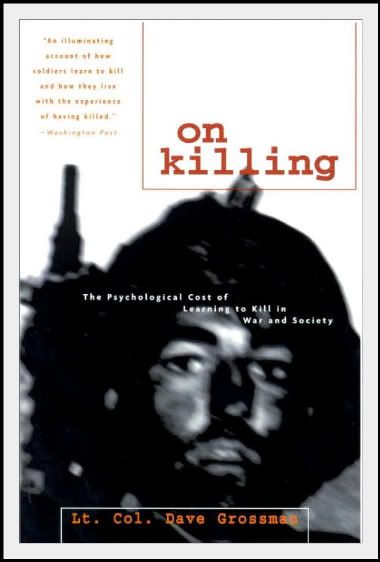In seven days I will be boarding a plane, by myself, to explore Rio de Janeiro, Brazil. I have no idea who I will meet or where I will be staying yet. I don't really have much of an agenda (well, aside from coming back alive), but I would like to hang glide over Rio and take a two day trek through the Serra dos Orgaos. The rest of my trip will be left to chance and living outside of my comfort zone, as it's not always easy traveling to a foreign country by yourself. We'll see what Brazil holds for me...
People like familiarity. Not deviating from routine. Security is comforting. However, isn't security just an illusion? At any moment in time you can lose your life, contract a disease, lose a loved one, etc. By just simply existing, there is an inherent risk in everything we do. How can we be comfortable with the unpredictability of life (something we cannot control) yet when we're presented with a decision that we are in full control of making, we often choose unhappiness over uncertainty. When it comes to personal risk, it seems as if we are afraid to move forward and take that next step because we don't know what awaits us on the other side.
Are we really willing to sacrifice our happiness in the name of comfort? Why so? I believe it's in part due to how we are raised. It's as if from birth, we have a social time line of events that we are expected to follow; go to college, get a job, meet a significant other, fall in love, work your way up the corporate ladder, put money down on a house, have a few kids, take a few trips to Disney world then watch your kids grow up and repeat the cycle.
Would uncertainty breed fear if societal norms and expectations did not exist? Or does it simply add fuel to an ever burning fire? When did we learn to associate uncertainty with the fear of failure? Uncertainty and the unknown should be exciting; it should bring hope of a better tomorrow and a chance for positive change.
"Imposed values and beliefs, Tear it down."--Hatebreed
Sunday, May 17, 2009
Friday, May 15, 2009
Is violence the new sexual repression?
0
Just this week it was reported that a U.S Soldier killed five of his fellow comrades while stationed in Baghdad. While one out of six soldiers suffer from PTSD, you have to wonder, is this the psychological cost of programming our soldiers to kill?
On Killing examines the psychological cost of learning to kill in war and society. Lt Col. Dave Grossman asserts that prior to the Vietnam war, a majority of World War II combat veterans did not possess the ability to kill. "In World War II, only 15-20 percent of combat infantry were willing to fire their rifles. In Korea, about 50 percent. In Vietnam, the figure rose to over 90 percent." Grossman also notes that those who actually did fire their rifles during WWII often fired over the enemies head. If it is not in man's nature to kill another man (enemy or foe), then how did we get to where we are today?
Through the years, Grossman's research shows how the military significantly altered their conditioning methods to breed killers and dehumanize the act of killing. "When people become angry, or frightened they stop thinking with their forebrain (the mind of a human being) and start thinking with their midbrain (Which is indistinguishable from the mind of an animal)..The only thing that has any hope of influencing the midbrain is also the only thing that influences a dog: classical and operant conditioning.)
These desensitizing techniques that are used to train our soldiers can also be found in American mainstream culture (tv, film, video games.) While I never really bought into the argument that the media is the cause of violence, I now understand that it greatly contributes to the problem. How so? As Grossman stated, violent media chips away at our fore brain to the point where we are more prone to act with our mid brains. It's as if we are ticking time bombs waiting to go off.
Grossman also draws an interesting link between sexual repression of the 70's and violence in today's society. Grossman argues that the natural process of sex, death and killing has been interrupted. Through technological advancements we have become isolated and disconnected from essential parts of life. Before modern society, communal living allowed children to understand that sex, death and killing were normal, vital aspects of human existence. By the Victorian era, houses had private rooms and suddenly, sex became private and taboo; something done behind closed doors. This ultimately paved the way for years of sexual repression within our society. And now, killing is the new sexual repression. As it's best said, to neglect it is to indulge it.
"Slaughterhouses and refrigeration insulated us from the necessity of killing our own food animals....nursing homes, hospitals and mortuaries insulated us from the death of the elderly. Children began to grow up having never truly understood where their food came from, and suddenly Western civilization seemed to have decided that killing, killing anything at all, was increasingly hidden, private, mysterious, frightening and dirty."

On Killing examines the psychological cost of learning to kill in war and society. Lt Col. Dave Grossman asserts that prior to the Vietnam war, a majority of World War II combat veterans did not possess the ability to kill. "In World War II, only 15-20 percent of combat infantry were willing to fire their rifles. In Korea, about 50 percent. In Vietnam, the figure rose to over 90 percent." Grossman also notes that those who actually did fire their rifles during WWII often fired over the enemies head. If it is not in man's nature to kill another man (enemy or foe), then how did we get to where we are today?
Through the years, Grossman's research shows how the military significantly altered their conditioning methods to breed killers and dehumanize the act of killing. "When people become angry, or frightened they stop thinking with their forebrain (the mind of a human being) and start thinking with their midbrain (Which is indistinguishable from the mind of an animal)..The only thing that has any hope of influencing the midbrain is also the only thing that influences a dog: classical and operant conditioning.)
These desensitizing techniques that are used to train our soldiers can also be found in American mainstream culture (tv, film, video games.) While I never really bought into the argument that the media is the cause of violence, I now understand that it greatly contributes to the problem. How so? As Grossman stated, violent media chips away at our fore brain to the point where we are more prone to act with our mid brains. It's as if we are ticking time bombs waiting to go off.
Grossman also draws an interesting link between sexual repression of the 70's and violence in today's society. Grossman argues that the natural process of sex, death and killing has been interrupted. Through technological advancements we have become isolated and disconnected from essential parts of life. Before modern society, communal living allowed children to understand that sex, death and killing were normal, vital aspects of human existence. By the Victorian era, houses had private rooms and suddenly, sex became private and taboo; something done behind closed doors. This ultimately paved the way for years of sexual repression within our society. And now, killing is the new sexual repression. As it's best said, to neglect it is to indulge it.
"Slaughterhouses and refrigeration insulated us from the necessity of killing our own food animals....nursing homes, hospitals and mortuaries insulated us from the death of the elderly. Children began to grow up having never truly understood where their food came from, and suddenly Western civilization seemed to have decided that killing, killing anything at all, was increasingly hidden, private, mysterious, frightening and dirty."

Monday, May 11, 2009
Life Incorporated
0"Life Inc the Movie In Life Inc., award-winning writer, documentary filmmaker, and scholar Douglas Rushkoff traces how corporations went from a convenient legal fiction to the dominant fact of contemporary life. Indeed as Rushkoff shows, most Americans have so willingly adopted the values of corporations that they’re no longer even aware of it."
Wednesday, May 6, 2009
Hell looks a lot like L.A
0
After some late night creative "googling", Kevin and I found out that "Plasterhead" has since been released in Japan (12/26/08), Singapore (1/6/09) and soon to be Germany (6/26/09). I must say it's incredibly difficult to search for a film in Japanese, especially when the film has been renamed "No Face" ("No Face" or, The Noppera-bo is a faceless ghost in Japanese mythology.) While this is great news it has also opened a can of worms...
What's disheartening is that we actually had to search the internet for our film's release dates, rather than having our producer rep's send us a simple producer's report detailing when the territories were released and when we could expect payment. What's more frustrating, is that we were led to believe these territories had not yet been released (or that some deals fell through). In the last year, there has been a severe lack of communication with our producer's reps and it's been hell trying to get in contact with them (Too busy trying to sell Direct to DVD Jimmy Fallon/Tom Arnold films...)
There is a whole slew of other issues. For one, Japan is broke and has delayed payment for the time being. Secondly, our producer rep's claimed they never delivered to Germany, yet somehow a release date and box art is ready to go (Which means something was delivered). More Headaches.
Bottom line...we shot this film when we were twenty-two and I will be turning twenty-six in a few weeks. We've declined to have our film represented this year at Cannes (the market right now is terrible). We are ready to begin work on a new film (and have), however, after almost 6 months of unemployment, 3 months of travel and no savings this year, the foreign money that is owed to us better make it's way into my mutual fund before the end of the year. We'd like to put the past behind us and move on...for good, but first we want what's been earned.
Subscribe to:
Comments (Atom)



